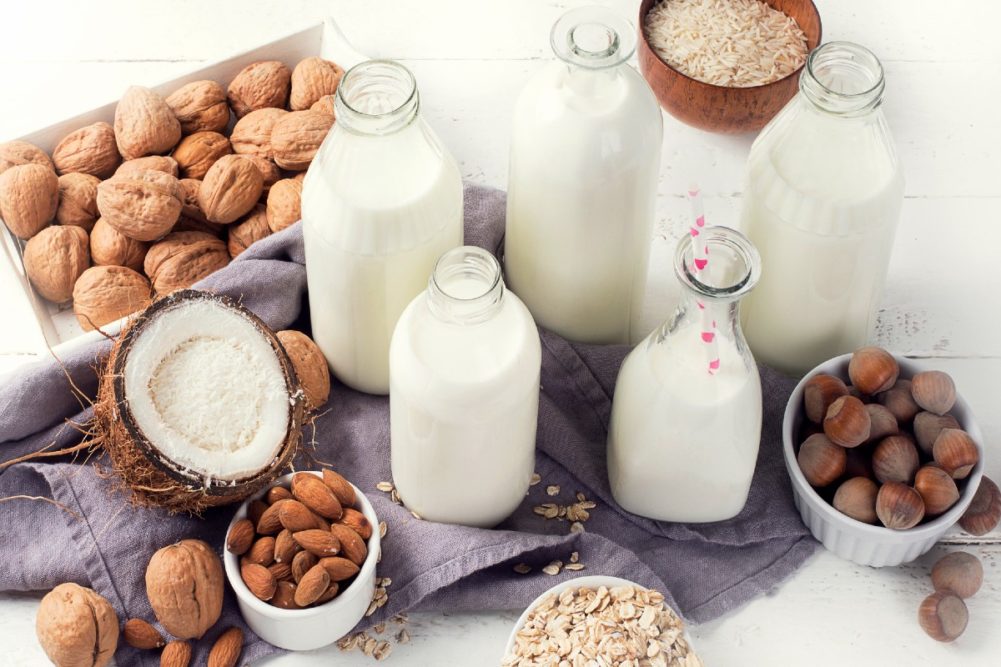According to TechSci Research report, “India Dairy Alternatives Market – By Region, Forecast & Opportunities, 2030F”, the India Dairy Alternatives Market was valued at USD 110.25 Million in 2024 and is expected to reach USD 215.58 Million by 2030 with a CAGR of 11.82% during the forecast period. The India Dairy Alternatives Market is witnessing a transformative shift driven by changing consumer preferences, increasing health awareness, and evolving lifestyle choices. Traditionally, dairy products like milk, yogurt, butter, and cheese have been integral to the Indian diet and culture, but the growing recognition of lactose intolerance, dairy allergies, and concerns over animal welfare are prompting consumers to explore plant-based alternatives. This emerging market comprises products derived from various plant sources such as almonds, soy, oats, coconuts, and other grains and nuts, offering options that are perceived to be healthier, sustainable, and ethical. Urbanization, increased disposable incomes, and the influence of global food trends are accelerating the adoption of dairy alternatives among Indian consumers, particularly in metropolitan areas and among younger demographics.
Many consumers in India are becoming more conscious of the nutritional content of their food and the potential health risks associated with conventional dairy consumption, such as lactose intolerance and high cholesterol. Plant-based dairy alternatives are often marketed as free from lactose and cholesterol, fortified with essential vitamins and minerals, and lower in saturated fats. This health-oriented narrative is compelling a significant segment of the population to seek out dairy-free options as part of their daily diets. Moreover, concerns about antibiotic use and hormones in traditional dairy farming are encouraging health-conscious consumers to shift towards cleaner, more natural food choices.
Market Overview
India’s dairy alternatives market is growing steadily, driven by rising health awareness, changing dietary preferences, and increasing incidences of lactose intolerance. Urban consumers, especially millennials and Gen Z, are seeking plant-based alternatives that align with vegan, allergen-free, and environmentally sustainable lifestyles. The market includes products like plant-based milk, yogurt, butter, and cheese made from soy, almond, oat, and coconut.
Browse over xx market data Figures spread through xx Pages and an in-depth TOC on ” India Dairy Alternatives Market” – https://www.techsciresearch.com/report/india-dairy-alternative-market/4084.html
Alongside health concerns, environmental sustainability is an increasingly important factor influencing consumer behavior in India’s dairy alternatives market. Traditional dairy farming has been linked to greenhouse gas emissions, water usage, and animal welfare issues, which have become key considerations for environmentally aware consumers. Plant-based dairy alternatives are promoted as more eco-friendly options with lower carbon footprints and reduced environmental impact. This message resonates strongly with younger consumers, urban professionals, and those engaged with global sustainability movements. Brands are actively highlighting their sustainable sourcing practices, use of recyclable packaging, and ethical production methods to appeal to this growing audience.
Key Market Trends
-
Rising Vegan and Flexitarian Lifestyles
A growing number of Indian consumers are adopting plant-based diets for health, ethical, and environmental reasons, boosting demand for dairy-free alternatives. -
Innovative Product Launches
Brands are introducing flavored, fortified, and functional dairy alternatives to enhance taste and nutritional appeal, catering to evolving consumer preferences. -
Influence of Fitness and Wellness Culture
The popularity of dairy alternatives is also linked to fitness trends, as they are often perceived as healthier options with fewer calories and no cholesterol. -
Expansion of E-commerce and Modern Retail
The availability of dairy alternatives on online platforms and in premium retail chains is making these products more accessible across urban centers.

Market Opportunities
-
Expanding to Tier 2 and Tier 3 Cities
With increasing health consciousness, there is an untapped market in semi-urban regions where awareness is growing rapidly. -
Development of Indianized Flavors
Introducing regionally inspired dairy-free products that match traditional Indian tastes can attract more consumers. -
Foodservice and Horeca Partnerships
Collaborating with cafes, restaurants, and quick service chains to offer dairy-free options can increase visibility and consumption.
Market Challenges
-
High Price Point
Most dairy alternatives are priced higher than traditional dairy, limiting adoption among price-sensitive consumers. -
Consumer Skepticism
Many consumers are still unfamiliar with the taste and nutritional value of plant-based products, leading to hesitation in switching from dairy. -
Supply Chain and Shelf Life Issues
Dairy alternatives often require cold chain logistics and have shorter shelf lives, posing distribution and storage challenges.
The India Dairy Alternatives Market is segmented into product type, end user, distribution channel and region.
Based on distribution channel, Soy is the dominating segment in India’s dairy alternatives market, primarily due to its rich nutritional profile, cost-effectiveness, and widespread acceptance. Soy-based dairy alternatives, such as soy milk, yogurt, and tofu, are high in protein, calcium, and essential amino acids, making them a preferred choice for health-conscious consumers, vegans, and those with lactose intolerance. The affordability of soy compared to other plant-based ingredients also enhances its mass-market appeal. Additionally, soy products have a long shelf life and are adaptable to Indian culinary preferences, further boosting their demand. With increasing awareness and easy availability, soy continues to lead the plant-based dairy segment.
Based on region, West India is emerging as the fastest-growing region in India’s dairy alternatives market, propelled by a confluence of factors including urbanization, health consciousness, and robust dairy infrastructure. States like Maharashtra, Gujarat, and Rajasthan are at the forefront of this growth, with cities such as Mumbai, Pune, and Ahmedabad witnessing a surge in demand for plant-based dairy products. The region’s strong cooperative networks, exemplified by organizations like Amul, provide a solid foundation for the distribution and acceptance of dairy alternatives. Additionally, the increasing prevalence of lactose intolerance and a shift towards vegan and health-oriented lifestyles among the urban population are driving consumers to explore plant-based options. The availability of diverse plant-based ingredients and the presence of innovative startups further bolster the region’s capacity to cater to this growing demand. With supportive infrastructure and a receptive consumer base, West India is poised to lead the expansion of the dairy alternatives market in the country.
Major companies operating in India Dairy Alternatives Market are:
- Blue Diamond Growers
- Dabur India Ltd
- Danone SA
- Nestlé SA
- ProSoya Foods
- Raw Pressery
- Sanitarium Health and Wellbeing Company
- The Hershey Company
- Dr. Oetker India Pvt Ltd.
- Agro Tech Foods Limited (Sundrop)
Download Free Sample Report – https://www.techsciresearch.com/sample-report.aspx?cid=4084
Customers can also request for 10% free customization in this report.
“The India dairy alternatives market is being driven by rising health consciousness, increasing cases of lactose intolerance, and growing awareness around animal welfare and environmental sustainability. Urban consumers are actively seeking healthier and ethical food options, fueling demand for plant-based alternatives. A major trend shaping the market is the surge in veganism and flexitarian diets, especially among millennials. Innovation in flavors, product types, and local ingredient integration is also attracting wider consumer interest.” said Mr. Karan Chechi, Research Director of TechSci Research, a research-based management consulting firm.
“India Dairy Alternatives Market By Product Type (Milk, Butter, Yogurt, Cheese, Others), By Source (Soy, Coconut, Almond, Others), By Distribution Channel (Supermarkets/Hypermarkets, Convenience Stores, Online, Others), By Region, Competition, Forecast & Opportunities, 2020-2030F”, has evaluated the future growth potential of India Dairy Alternatives Market and provides statistics & information on market size, structure and future market growth. The report intends to provide cutting-edge market intelligence and help decision makers take sound investment decisions. Besides, the report also identifies and analyzes the emerging trends along with essential drivers, challenges, and opportunities in the India Dairy Alternatives Market.
Contact Us-
TechSci Research LLC
420 Lexington Avenue, Suite 300,
New York, United States- 10170
M: +13322586602
Email: sales@techsciresearch.com
Website: www.techsciresearch.com
 :
https://in.pinterest.com/priyankatechsci/
:
https://in.pinterest.com/priyankatechsci/

